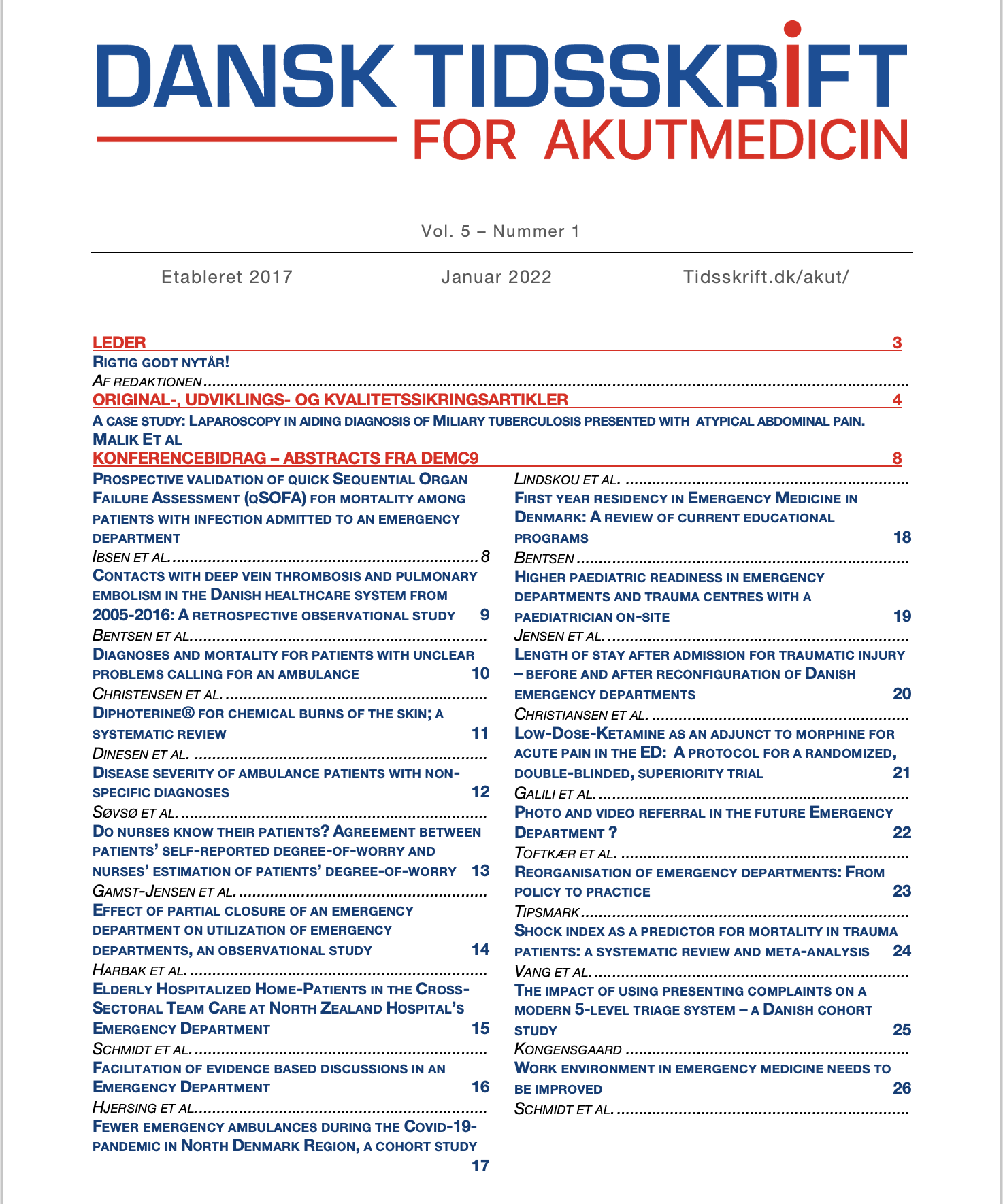Resumé
Background: Traumatic injury accounts for 7.8% of all deaths globally, and 30% to 40% of those deaths are due to hemorrhage. Shock Index (SI) has been found to be useful in the recognition of hemorrhage but no definite threshold for predicting mortality has been determined. Our aim was to determine whether a SI ≥ 1 in adult trauma patients was associated with increased in-hospital mortality compared to a SI < 1.
Methods: We conducted a systematic review and meta-analysis using Preferred Reporting Items for Systematic Reviews and Meta-Analysis guidelines. EMBASE, MEDLINE, and Cochrane Library were searched using controlled vocabulary, and retrospective observational studies were included. Studies were included if they reported in-hospital mortality in trauma patients aged ≥ 16 years, with a measurement of SI from the emergency department or trauma center, dividing patients in groups of SI ≥ 1 and SI < 1. Risk of bias was assessed by using the Newcastle-Ottawa Scale, and the strength and quality of the body of evidence was assessed according to GRADE. Data was pooled using a random effects model.
Results: We screened 1239 citations with an inter-rater reliability (Cohen’s kappa) of 0.90 (95% CI 0.88-0.93). Thirteen comparative cohort studies including 639210 patients were included. All studies reported a significant higher in-hospital mortality in adult trauma patients with a SI ≥ 1 compared to those having a SI < 1 at first assessment in the emergency department or trauma center. Eleven studies were included in the meta-analysis. The pooled risk ratio (RR) of in-hospital mortality was RR 4.29 (95% confidence interval 3.00 - 6.12). The overall quality of evidence was low.
Conclusion: This systematic review found a fourfold risk of in-hospital mortality in adult trauma patients with an initial SI ≥ 1 in the emergency department or trauma center.
Licenseret under en Creative Commons Kreditering 4.0 International-licens (CC BY 4.0).
© Forfatterne.

